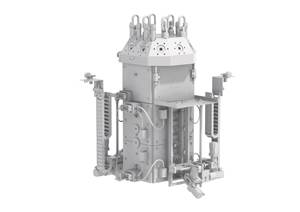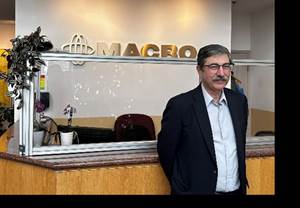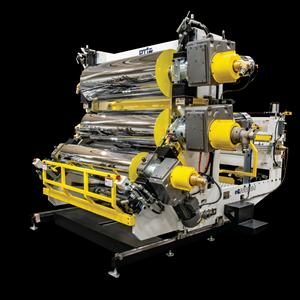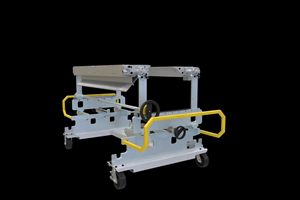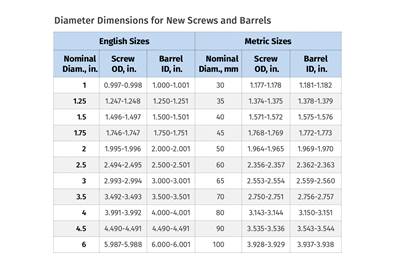Global Processors Establishing U.S. Footprint
Transplant Processors
Two major international processors establish plants in central Pennsylvania to serve the U.S. market.
If there is doubt as to whether the uptick in North American plastics processing is sustainable, best to ask two industry leaders with roots in Europe and Asia. Motivated by some combination of lower-cost energy, access to an expanding customer base, or an opportunity to introduce time-tested technology a new audience, two global processors last year put stakes in the ground in central Pennsylvania.
Greiner Packaging Corp., an Austrian-based global packaging powerhouse with more than a dozen facilities throughout Europe, opened a new 114,000 ft² facility last October in Pittston Township. This move enables Greiner to introduce to North America a new type of packaging called K3, which in German stands for Karton-Kunststoff-Kombination, or “cardboard-plastic combination.”
Meanwhile, China-based Taizhou Fuling Plastics Co. Ltd., opened its first plant outside that country—Fuling Plastics USA—out of an 88,000 ft² plant in Allentown. The decision was fueled by a need to be closer to the ever-growing U.S. fast-food market.
Both processors are in the early phases of their plans to produce products to serve the North American market. Both have ambitious plans for future growth.
Plastics Technology toured the Greiner plant in April as part of a four-day tour of plastics processors and suppliers in central Pennsylvania, sponsored by CORE PA Global. The organization is the centerpiece of a state government initiative to increase the visibility of a 53-county footprint of Pennsylvania to international and domestic investors and reshoring prospects.
SUSTAINABLE GOALS
Greiner is currently running three sheet lines with in-line thermoforming in Pittston Township. The extrusion lines are 75-mm systems furnished by Battenfeld-Cincinnati (U.S. office in McPherson, Kan.) that run in-line with ROM 70K thermoformers from Illig Maschinenbau (U.S. office in Chester Springs, Pa.). Materials-handling and blending systems came from Motan Inc., Plainwell, Mich. Michael Reiser, CEO of the new U.S. operation, notes that Greiner has long ties with all three equipment vendors, adding that the packaging firm worked closely with Illig on proprietary technology to increase forming speeds. Reiser estimates the cost of each line at approximately $2 million.
In Greiner’s plant, there is no piping directly on the production floor. Instead, services are located in separate rooms. Material is fed from three silos outside to Motan blenders (Plainwell, Mich.; ) on a mezzanine above the production floor. Post-forming skeleton scrap goes to a granulator from Rapid Granulator (Cranberry Township, Pa.) and is automatically refed into the production process.
After forming, the containers are sent to a paper-cup-making machine Greiner developed with Horauf, a company that started in Stuttgart and has a North American operation near Greiner’s plant in Allentown . Instead of wrapping the cardboard around the cup, the machine first creates the cardboard wrap, then the formed plastic cup is placed inside. As a result of this approach, only one dot of adhesive is required to join the two components. At the moment, Greiner has four Horauf machines, each devoted to specific cup sizes, so that tool changeovers are not required. Cups are stored for 24 to 48 hr in a temperature-controlled room to account for shrinkage. In the U.S., Greiner currently supplies cups in 73-, 80-, 95-, and 116-mm dia.
Greiner is currently running PP, but other polymers are under evaluation. Reiser says the cardboard-PP combination is a “sustainable solution” for dairy and other applications. For example, it is currently being specified by Stoneyfield Farms for yogurt. Stoneyfield has a reputation for being environmentally conscious. Consumers like the feel of cardboard, Reiser point outs. Moreover, the combination of the two materials gives the package more topload strength vs. an all-plastics container, and greater shelf life vs. an all-cardboard structure. The cardboard package is designed with a zipper so that it can be easily peeled off and separated from the plastic cup inside. According to Reiser, the design also permits a 50% reduction in PP vs. an all-plastic cup.
Reiser was quick to categorize the K3 as “not a commodity.” It was developed in the early 1990s by a company in Switzerland that Greiner subsequently acquired. “We’re looking at new markets, at establishing new trends with a novel solution that is sustainable, environmentally friendly, and will extend the shelf life of products that might currently be packaged in cardboard.” He mentioned ice cream as an example.
Greiner currently has 45 employees, a number that Reiser expects to double by the end of the year. Plans are in the offing to expand extrusion capacity and also bring in two injection molding machines with IML capabilities from Engel (U.S. office in York, Pa.). Greiner has the space to more than double its current production capacity.
Greiner, a family-owned company, didn’t select its location on a random basis, company officials say. Greiner says central Pennsylvania was chosen because the region offers an excellent economic environment, qualified workers, and good transportation access to the U.S. market. States Willi Eibner, company CEO, “We satisfy increasing needs for new and innovative packaging opportunities with our strategic step towards expansion. We therefore provide companies of the dairy industry a clear market edge. Moreover, many of our most important customers already have U.S. presence so we can now continue to strengthen these good customer relations in the American market.”
MADE IN AMERICA, CHINESE STYLE
It was that same access to a giant market that brought Taizhou Fuling Plastics Co. Ltd. to Allentown last year. In China, the company runs 120 injection molding machines, 10 extrusion lines, and 20 thermoforming lines. Employing more than 1000 people, Fuling Plastics serves primarily the fast-food service industry with cutlery, straws, and other disposables.
In Phase I of a multi-part, $21 million plan, Fuling Plastics USA has installed four turnkey lines to extrude and wrap PP straws, with two more lines waiting to be installed. Equipment was furnished by Jumbo Steel Machinery Co. Ltd. of Taiwan. Six more lines are due to be put it this fall, states Bob Chapleski, v.p. of production and one of the U.S. operation’s six employees. Current customers include fast-food giants and supermarket chains. At press time, Fuling Plastics USA was in the testing phase and was not yet selling product.
Explaining the company’s decision to invest in processing in the U.S., Chapleski explained, “For straws alone, the cost of shipping products from China cost the company $10 million a year.” He said Phase II of the expansion will likely include additional extrusion lines and injection machines for PP cutlery. “The company’s plan is to grow quickly and sell branded products in the U.S.,” he says.
Fuling looked at potential locations in the Carolinas, New Jersey, Maryland, and three sites in Pennsylvania before settling on Lehigh County. States Don Cunningham of the Lehigh Valley Economic Development Corp., “Fuling wanted to be closer to its customer base, and the Northeast is the biggest in the U.S. for fast food. Smart businesses get closer to their customers and hire local people, and that’s what’s happening here.” Ultimately Fuling could have as many as 80 employees.
Related Content
Macro Names Anzini Tech Sales Manages for Southeast
Has worked in technical roles for leading processing companies in his career of 40+ years.
Read MoreRoll Stand is Compact, Flexible
Streamlined stack is joined by high-speed extruder; service cart for maintaining screws, dies and rolls; and other products.
Read MoreDie-Service Cart Upgraded to Handle Screws, Chill Rolls
Processing Technologies International LLC has released its next-generation flat die servicing system, the uCAMS (Universal Cleaning Assembly and Maintenance System) Plus.
Read MoreRead Next
How Polymer Melts in Single-Screw Extruders
Understanding how polymer melts in a single-screw extruder could help you optimize your screw design to eliminate defect-causing solid polymer fragments.
Read MoreTroubleshooting Screw and Barrel Wear in Extrusion
Extruder screws and barrels will wear over time. If you are seeing a reduction in specific rate and higher discharge temperatures, wear is the likely culprit.
Read MoreLead the Conversation, Change the Conversation
Coverage of single-use plastics can be both misleading and demoralizing. Here are 10 tips for changing the perception of the plastics industry at your company and in your community.
Read More

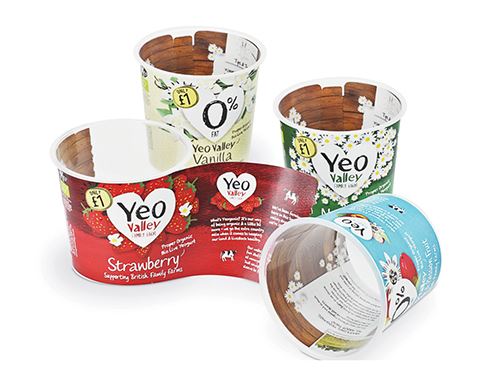
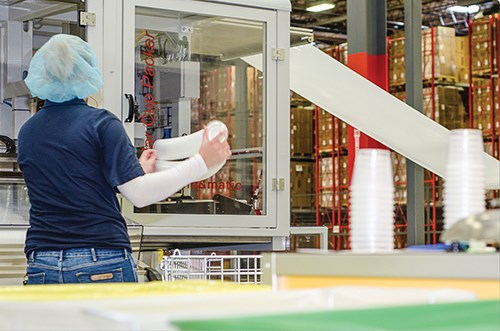

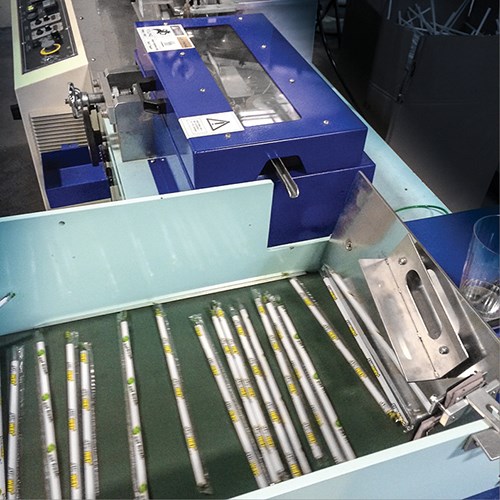
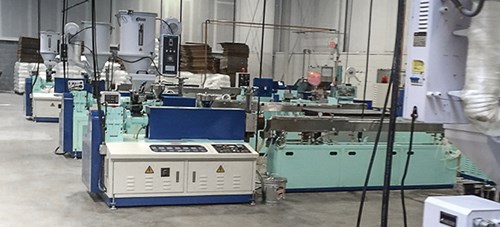






.png;maxWidth=300;quality=90)















